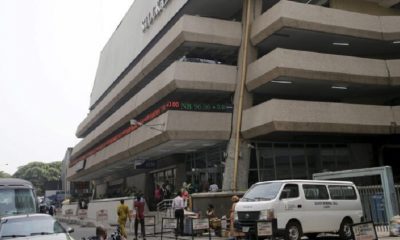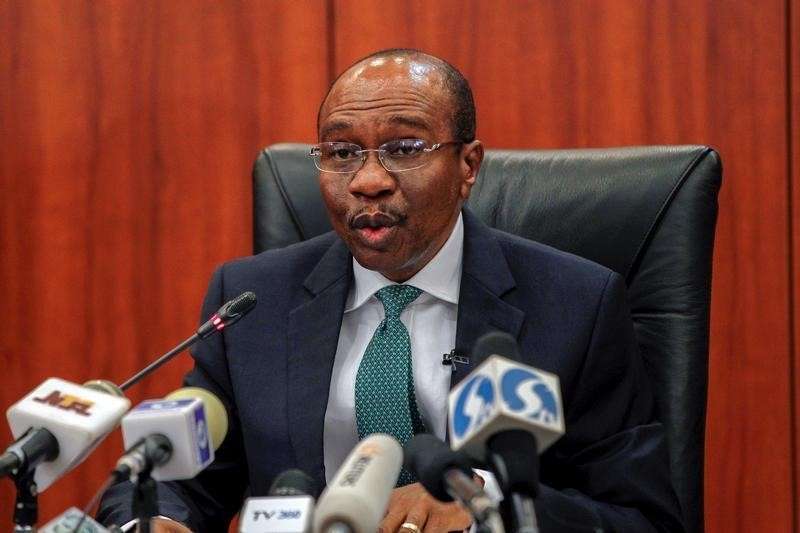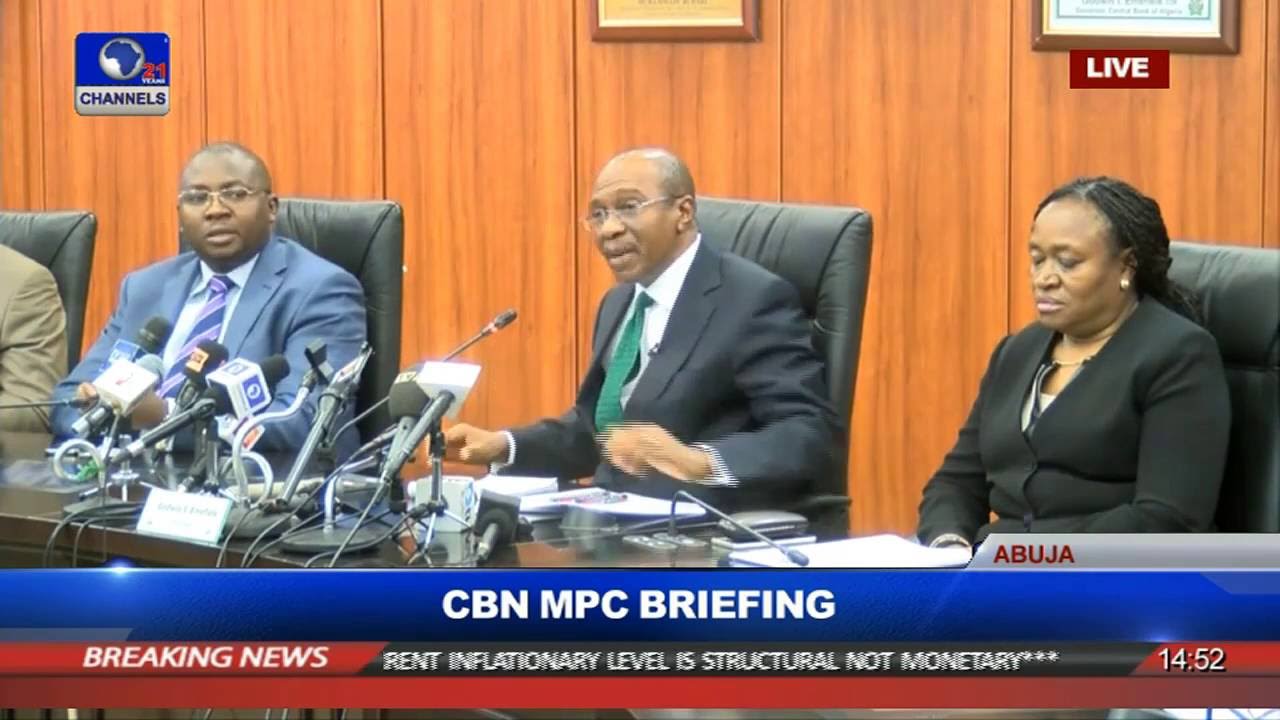Economy
Kenya Retains Interest Rates At 10% To Boost Economy
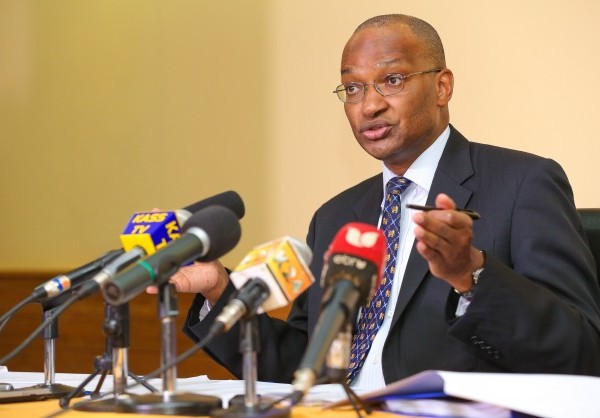
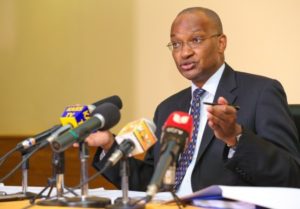
By Modupe Gbadeyanka
The Central Bank of Kenya (CBK) has announced that it is retaining its Central Bank Rate (CBR) at 10 percent.
This decision was reached after the Monetary Policy Committee (MPC) meeting held on Monday, November 28, 2016, to review the outcome of its previous policy decisions and the recent economic developments.
Business Post gathered that the MPC meeting took place against the backdrop of increased uncertainties in the domestic and global economies.
It explained that it retained the rates due to the prevailing domestic and global economic uncertainties and the need for more conclusive information on these developments.
According to Chairman of the MPC, Dr Patrick Njoroge, it was noted that the country’s month-on-month overall Consumer Price Index (CPI) inflation rose to 6.5 percent in October 2016 from 6.3 percent in September.
This, it was learnt, was caused largely due to changes in the prices of food items such as tomatoes and sugar.
However, the overall inflation remained within the government target range.
Also, the month-on-month non-food-non-fuel (NFNF) increased to 5.4 percent in October from 5.1 percent in September, reflecting increases in the prices of items in the clothing and footwear CPI category and the impact of the excise tax introduced in December 2015.
The 3 month annualized NFNF inflation rose slightly in October, an indication of mild demand pressures in the economy.
The MPC further observed that the foreign exchange market has been relatively stable despite the volatility in the global financial market following the US elections and the seasonal increase in demand for foreign exchange by corporate to finance dividend payments.
It said the foreign exchange market continues to be supported by the narrowing of the current account deficit mainly due to lower imported petroleum prices, lower imports of machinery and equipment, and resilient diaspora remittances. Tourism earnings and export receipts from tea and horticulture have stabilized.
The MPC said the CBK’s foreign exchange reserves which currently stand at $7,305 million (4.8 months of import cover) together with the Precautionary Arrangements with the international Monetary Fund (equivalent to $1.5 billion) have continued to provide adequate buffers against short-term shocks.
But the CBK said it was working closely with the National Treasury to ensure coordination of monetary and fiscal policies. Execution of the government’s domestic borrowing plan for FY2016/17 continues to support stability in the market.
It was disclosed that banking system liquidity and its distribution have stabilized. The average commercial banks’ liquidity ratio increased to 43.6 percent in October from 41.9 percent in August 2016 and the average capital adequacy ratio stood at 19.1 percent in October.
The CBK continues to closely monitor credit and liquidity risks in the sector. Continued interest of foreign banks to enter the local market indicates confidence in the banking sector.
Following the introduction of interest rate caps on back lending and deposits, the Committee noted that the available data were inadequate to facilitate a conclusive analysis of their impact on monetary policy and the overall economy. The CBK will continue to closely monitor developments in this respect.
The MPC also observed that private sector credit growth had stabilized at 4.6 percent in October. The slower growth witnessed over the last several months was found to be largely an outcome of structural factors in the banking sector rather than monetary policy.
However, there is no evidence that this is having a negative impact on economic growth.
The performance of the economy in the second quarter of 2016 was strong, growing by 6.2 percent compared to 5.9 percent in a similar period of 2015.
The MPC Market Perception Survey conducted in November 2016 showed mixed expectations. While the non-bank private sector remains optimistic for higher growth in 2016, banks were cautious as they continue to monitor the potential impact of the capping of interest rates.
Also, global growth prospects remain fragile on account of uncertainties in part due to the impact of Brexit and political developments in the U.S. Uncertainty relating to the tightening of US monetary policy and its implications for global capital flows remain a concern.
The Committee concluded that inflationary pressures were mild and inflation will remain within the Government target range in the short term.
Economy
NGX RegCo Cautions Investors on Recent Price Movements

By Aduragbemi Omiyale
The investing public has been advised to exercise due diligence before trading stocks on the Nigerian Exchange (NGX) Limited.
This caution was given by the NGX Regulation Limited (NGX RegCo), the independent regulatory arm of the NGX Group Plc.
The advisory became necessary in response to notable price movements observed in the shares of certain listed companies over recent trading sessions.
On Monday, the bourse suspended trading in the shares of newly-listed Zichis Agro-allied Industries Plc. The company’s stocks gained almost 900 per cent within a month of its listing on Customs Street.
In a statement today, NGX RegCo urged investors to avoid speculative trading based on unverified information and to consult licensed intermediaries such as stockbrokers or investment advisers when needed.
It explained that its advisory is part of its standard market surveillance functions, as it serves as a measured reminder for investors to prioritise informed and disciplined decision-making.
The notice emphasised that the Exchange will continue to monitor market activities closely in line with its mandate to ensure a fair, orderly, and transparent market.
“NGX RegCo encourages all investors to base their decisions on publicly available information, including a thorough assessment of company fundamentals, financial performance, and risk profile,” a part of the disclosure said.
It reassured all stakeholders that the NGX remains stable, well-regulated, and resilient, saying the platform continues to foster an environment where investors can participate with confidence, supported by robust oversight and transparent market operations.
“Our primary responsibility is to maintain a level playing field where market participants can trade with confidence, backed by timely and accurate information.
“This advisory is a routine communication, reinforcing that sound fundamentals, not speculation, remain the foundation for sustainable investment outcomes. We are fully committed to preserving the integrity and stability of our market,” the chief executive of NGX RegCo, Mr Olufemi Shobanjo, stated.
Economy
Stronger Taxpayer Confidence, Others Should Determine Tax Reform Success—Tegbe

By Modupe Gbadeyanka
The chairman of the National Tax Policy Implementation Committee (NTPIC), Mr Joseph Tegbe, has tasked the Nigeria Revenue Service (NRS) to measure the success of the new tax laws by higher voluntary compliance rates, lower administrative costs, fewer disputes, faster resolution cycles, and stronger taxpayer confidence.
Speaking at the 2026 Leadership Retreat of the agency, Mr Tegbe said, “Sustainable revenue performance is built on trust and efficiency, not enforcement intensity,” emphasising that the legitimacy and predictability of the system are more critical than punitive measures.
He underscored that the country’s tax reform journey is at a critical juncture where effective implementation will determine long-term fiscal outcomes.
The NTPIC chief stressed that tax policy must serve as an enabler of governance, and should embody simplicity, equity, predictability, and administrability at scale.
These principles, he explained, foster voluntary compliance, reduce operational friction, and strengthen investor confidence. He warned that ad-hoc adjustments or policy drift could undermine reform momentum, unsettle businesses, and deter investment, which thrives on predictable rules rather than shifting announcements. Structured sequencing, clear transition mechanisms, and continuous feedback between policymakers and administrators are therefore critical to sustaining reform credibility.
Mr Tegbe further argued that revenue reform cannot succeed in isolation. Achieving sustainable gains requires a whole-of-government approach, leveraging robust taxpayer identification systems, integrated financial data, efficient dispute resolution, and harmonised coordination across federal and sub-national levels. This approach, he said, reduces leakages, eliminates multiple taxation, and reinforces confidence in the system.
He noted that the passage of four new tax laws marks only the beginning of a broader reform agenda, describing the initiative as a systemic recalibration of Nigeria’s fiscal architecture, rather than a routine policy update.
He further asserted that the true measure of success will be the credibility of implementation, not the design of the laws themselves.
The NRS, he noted, functions as the nation’s “Revenue System Integrator,” with outcomes reflecting the strength of an interconnected ecosystem that encompasses policy clarity, enforcement consistency, digital infrastructure, dispute resolution efficiency, and intergovernmental coordination.
Economy
NUPENG Seeks Clarity on New Oil, Gas Executive Order

By Adedapo Adesanya
The National Union of Natural and Gas Workers (NUPENG) has expressed deep concern over the Executive Order by President Bola Tinubu mandating the Nigerian National Petroleum Company (NNPC) Limited to remit directly to the federation account.
In a statement signed by its president, Mr William Akporeha, over the weekend in Lagos, the union noted that the absence of detailed public engagement had naturally generated tension within the sector and heightened restiveness among workers, who are anxious to know how the new directive may affect their employment, welfare and job security, especially as it affects NNPC and other major operations in the oil and gas sector.
It pointed out that the industry remained the backbone of Nigeria’s economy, contributing significantly to national revenue, foreign exchange earnings, and employment.
The NUPENG president affirmed that any policy shift, particularly one introduced through an Executive Order, has far-reaching consequences for regulatory frameworks, Investment decisions, operational standards, and labour relations within the sector.
According to him, “there is an urgent need for clarity on the scope and objectives of the Executive Order -What precise reforms or adjustments does it introduce? “Its implications for the Petroleum Industry Act -Does the Order amend, interpret, or expand existing provisions under PIA?
“Impact on workers and existing labour agreements-Will it affect job security, conditions of service, Collective Bargaining agreements or ongoing restructuring processes within the industry? “Effects on indigenous participation and local content development -How will it affect Nigerian companies and employment opportunities for citizens?”
He warned that without proper consultation and explanation, misinterpretations of the Executive Order may spread across the industry, potentially destabilising operations and undermining industrial harmony that stakeholders have worked hard to sustain.
“Though our union remains committed to constructive engagement, national development and stability of the oil and gas sector, however, we are duty-bound and constitutionally bound to protect the rights and welfare and job security of our members whose livelihoods depend on a clear, fair and predictable policy framework,” Mr Akporeha further stated.
-

 Feature/OPED6 years ago
Feature/OPED6 years agoDavos was Different this year
-
Travel/Tourism10 years ago
Lagos Seals Western Lodge Hotel In Ikorodu
-

 Showbiz3 years ago
Showbiz3 years agoEstranged Lover Releases Videos of Empress Njamah Bathing
-

 Banking8 years ago
Banking8 years agoSort Codes of GTBank Branches in Nigeria
-

 Economy3 years ago
Economy3 years agoSubsidy Removal: CNG at N130 Per Litre Cheaper Than Petrol—IPMAN
-

 Banking3 years ago
Banking3 years agoSort Codes of UBA Branches in Nigeria
-

 Banking3 years ago
Banking3 years agoFirst Bank Announces Planned Downtime
-

 Sports3 years ago
Sports3 years agoHighest Paid Nigerian Footballer – How Much Do Nigerian Footballers Earn



